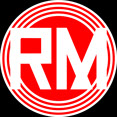

Michael O'Keeffe, New York Daily News
Punk rock warrior Scott M.X. Turner and Develop Don’t Destroy Brooklyn nearly pulled off the upset of the century: The community activists, outmanned and outspent by Bruce Ratner and his deep pockets and political connections, came within a few weeks of halting plans for the Barclays Center and the rest of the real estate developer’s massive Atlantic Yards project.
Turner packed up his guitar - and his collection of cool sports jerseys — shortly after Russian oligarch Mikhail Prokhorov rescued the foundering project in 2009 and moved to Seattle, where he teamed up with fellow provocateur Ian Hill. The duo - known as RebelMart - just released a new album called “Black River Rising,” a riot of rock, folk, reggae and country that includes homages to two of Turner’s sports heroes.
“Scoundrel Man” - which sounds like something Joe Strummer might have come up with if he was a baseball fan — Turner sings about Bill Veeck, the pioneering owner of the Chicago White Sox and Cleveland Indians. Turner says Veeck belongs in the Hall of Fame because unlike today’s corporate-minded, profit-driven owners, he cared about giving fans a great ballpark experience at fair prices.
On “Reality Upgrade,” a slinky ’70s-sounding number that would feel right at home on the “Shaft” soundtrack, Turner celebrates Curt Flood, the St. Louis Cardinals center fielder who unsuccessfully challenged the reserve clause but ultimately cleared a path to free agency. “I’m not a piece of property with my bat speed and Gold Glove,” Turner sings.
“Curt Flood was one of the bravest athletes in history,” Turner tells The Score. “None of his contemporaries had his back, but he still fought and that is what makes him heroic.”
(New York Daily News, November 3, 2013)
Gwendolyn Elliot, Seattle Weekly
Rebelmart is the "rock, folk, reggae, Irish, country, and punk" music of Scott Turner and Ian Hill—the latter of whom, with a team of investors, recently put in a bid to purchase the troubled Comet Tavern. Rebelmart’s genre-fused rock is a good metaphor for the bar, which over the years has been a second home to everyone from poets, actors, and political organizers to punks and grunge rockers. This show is NOT happening at the Comet, but across town at the High Dive, a venerable venue with its own story to tell. If you love the Comet, however, you should head out to this show—and support this band—because all proceeds will go to the nonprofit New Beginnings, which provides advocacy and shelter to victims of domestic violence. Ian Hill—geez, what a nice dude.
(Seattle Weekly, October 23-29, 2013)
Michael O'Keeffe, New York Daily News
THE ATLANTIC YARD BLUES
Scott M.X. Turner spent seven years on the front lines of the battle against Bruce Ratner's Atlantic Yards, so it is no surprise that "Amalgamated Saboteurs Local 21," the new album from his one-man band RebelMart, is full of songs about doom and defeat."Strength in Numbers," a rocker that would have fit in on the Clash's "Give 'Em Enough Rope," includes a line that will surely depress fans of a vanishing Coney Island: "Ruby's Bar still wears the crown, but Thor's hammer is coming down."
"The album was going to be called 'Brooklyn is Dying,' says Turner, a Develop Don't Destroy Brooklyn mainstay for many years. "I recorded 40 songs and a lot of them are about the disintegration of Brooklyn at the hands of the Bloomberg administration."
Turner, a graphic artist whose specialty is sports jerseys, moved to Seattle earlier this year to pursue a job opportunity. The move from Brooklyn has helped him focus on his music career, too, he says. Although ground broke for the Nets' Brooklyn arena in March, Turner says the fight isn't over. A state judge ordered the Empire State Development Corp. to revisit its environmental impact study for the project, saying the agency withheld information about the construction timetable. "There are still battles to be fought," Turner says. "So many of the promises they made about jobs and affordable housing will be broken.
"We fought this thing hard for seven years," Turner adds, "and if it were not for a Russian oligarch with connections to the Kremlin, we would have won."
(New York Daily News, November 10, 2010)
Steve Wishnia, The Indypendent
There isn’t much overtly right-wing music. Ted Nugent is known as a farright rock star for his “God, guts, and guns” spiel, but his favorite lyric subject is sex. Sure, there’s the occasional jingoistic country hit by Toby Keith or Lee Greenwood, and a small subculture of “white power” skinhead rock, but overall the vast majority of popular music ranges from apolitical to leftist.
Conservapedia, the website whose creators believe Wikipedia has a “liberal bias” because it doesn’t treat “young-earth creationism” as legitimate science, is trying to remedy that. It has a growing list of the 68 “greatest conservative songs,” based on criteria like patriotism, religiosity, Southern pride and appropriate sexual values.
The list is heavy on country (“virtually anything by Toby Keith”) and ’70s Southern rock and prog-rock. However, some of its selections are quite a stretch. Yes, ’70s hits like Orleans’ “Still the One” and Harry Chapin’s “Cat’s in the Cradle” were respectively “a tribute to fidelity in relationships” and expressed the importance of “responsible fatherhood,” but Orleans’ lead singer John Hall became a liberal congressmember, and Chapin regularly played benefits for Michael Moore’s first newspaper. “Love Me, I’m a Liberal,” by ’60s protest singer Phil Ochs, is about “revealing liberal hypocrisy”— the hypocrisy of liberals who denounce the left instead of living up to their principles. And the Flying Burrito Brothers’ “Sin City,” an early country-rock tune, “attacks modern decadence and predicts divine punishment for sin”— but it warns the rich that their gold-plated doors won’t protect them, mourns the murder of Robert F. Kennedy, and was written by Gram Parsons, who did so much dope that Keith Richards worried about his health. (Parsons, a seminal figure in country-rock, died of a morphine overdose in 1973.)
Conservapedia could find more explicitly right-wing music by digging deeper into American history. In the 1920s, the Indianapolis-based KKK label put out records like “Why I Am a Klansman.” (Phonograph inventor Thomas Edison called it a “fair tune,” but refused to distribute such “trash” on his label.) The ’60s saw the obscure genre of segregationist country, with acts named Johnny Rebel, James Crow and Odis Cochran and the Three Bigots. (Their song titles fixated on one six-letter word.)
Enough mocking the far right. How about something good and something homegrown? Two new CDs by Brooklyn rock singer-songwriters, RebelMart’s Amalgamated Saboteurs Local 21 and Lorraine Leckie’s Martini Eyes, fill the bill.
RebelMart is the one-man band of Scott M.X. Turner, who previously played in the Spunk Lads — “a long-lost English ’77 punk band” — and the Devil’s Advocates. (Disclaimer: I’ve played with Turner in two bands.) He’s a fiercely political songwriter who frenetically flays a frayed-paint Telecaster [electric] guitar. An Irish-American Joe Strummer might be a good place to start your imagination.
Turner was active in the campaign to stop developer Bruce Ratner from demolishing several blocks of Brooklyn (including his favorite venue, Freddy’s Bar) for a taxpayer-supported real-estate scheme. Disgusted after that campaign lost, he decamped for Seattle. As a result, Amalgamated Saboteurs Local 21 has a lot of songs about defeat, laments for a doomed Brooklyn. “Ruby’s Bar still wears the crown, but Thor’s hammer is a-comin’ down,” he rages on the opening track. The music leaps eclectically but cohesively, from ’77-punk blast to driving acoustica to dubwise groove to Celt-flavored balladry. “The Devil Down in the Water,” Turner’s Hurricane Katrina song, gets transformed into a dirge with a tolling bodhrán drum.
The album encompasses Americana from the 7 train to the Dust Bowl, contrasting Seattle’s “first ever Hooverville” with its latte-and- computers image, and mourning the lonely, alcoholic death of Stephen Foster, “like a 19th-century rock star,” Turner said at a recent show in Brooklyn. It closes with a harmonica moaning like a dying prairie campfire.
(The Indypendent, November 17, 2010


